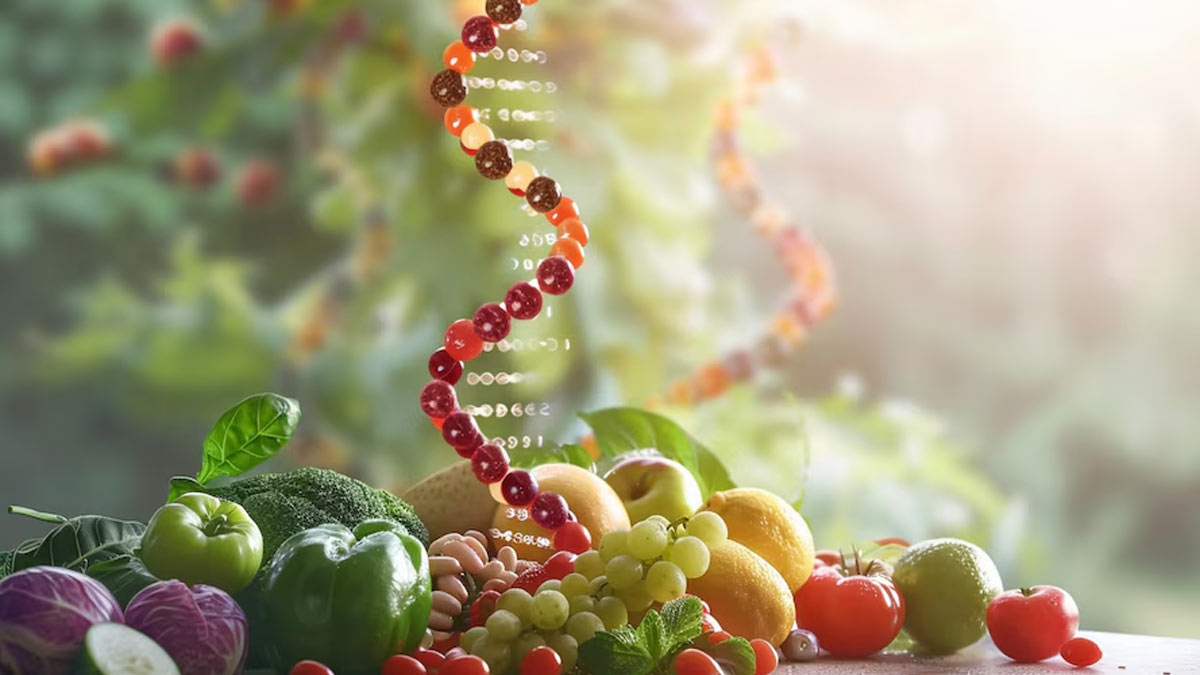
Have you ever wondered why certain diets work wonders for some people but not for others? It turns out, the answer might be in your genes. Our bodies respond to nutrients differently based on our genetic makeup, which means your DNA could be the guide to choosing the right foods for your health. Genes can affect how efficiently your body processes carbohydrates, fats, and proteins, which, in turn, impacts your energy levels, weight management, and overall health. We spoke to our expert Dr Aparna Bhanushali, European Board Certified-Clinical Laboratory Geneticist (affiliated), Head-Growth and Scientific Support, HaystackAnalytics, who shared insights on how your DNA can influence your dietary choices for better health outcomes.
Table of Content:-

Your genetic makeup can determine how nutrients are absorbed, and utilised, and how your body stores fat or builds muscle. These genetic variations may also influence how your body responds to specific nutrients, further emphasising the personalised nature of nutrition, said Dr Bhanushali.
According to a study published by the National Institute of Health (UK), assessing human nutrition is incomplete without accounting for genetic variability, which can influence key nutritional processes, such as absorption, metabolism, receptor function, and excretion. Inherited differences in enzyme activity and other functional proteins lead to variations in nutritional needs and how certain nutrients interact with genetically determined biochemical and metabolic factors.
How Do Genes Shape Nutrient Absorption and Metabolism
Here are some ways in which each of these nutrients is influenced by your genetic makeup:
Iron Metabolism and Absorption

Genetics can significantly impact how your body processes and absorbs iron. “Some people may carry gene variants (alterations in your DNA) that make it harder to absorb iron from food, increasing the risk of iron deficiency anaemia. On the other hand, certain genetic variants can lead to excessive iron absorption, known as hemochromatosis, which can result in tissue damage over time,” said Dr Bhanushali.
Understanding your genetic predisposition to iron deficiency can help you tailor your diet, ensuring you consume appropriate levels of iron and potentially adjusting your intake of iron-rich foods like red meat, spinach, and legumes in your diet and pair them with vitamin C-rich foods to enhance absorption to avoid iron deficiency.
Also Read: How To Choose The Right Nutritionist? Expert Shares A Step-By-Step Guide
Carbohydrate Sensitivity and Metabolism
Just like with fat, genetics influence how your body handles carbohydrates. For some, genes that influence insulin sensitivity and glucose metabolism may make a low-carb diet more beneficial, helping to maintain stable blood sugar levels and reduce the risk of type 2 diabetes.
“For others, a regular carbohydrate intake may be necessary for energy balance, as their genetic makeup allows for efficient carb metabolism. Knowing your body’s genetic response to carbohydrates will guide you in selecting the right amount and types of carbs, such as whole grains or fibre-rich vegetables,” added Dr Bhanushali.
Vitamin D Absorption and Utilisation

Some people can soak up the sun or eat vitamin D-rich foods and still struggle with low vitamin D levels. This is because genetics play a crucial role in how well your body absorbs and uses this important nutrient. If you have certain genetic variations, you might be more likely to develop a vitamin D deficiency, even with plenty of sun exposure. This deficiency can weaken your bones and raise the risk of osteoporosis. By understanding your genetic profile, you can adjust your vitamin D intake through supplements or fortified foods to meet your body’s needs and support bone health.
Also Read: From Plate To Performance: Expert Lists Ways To Elevate Your Life With Optimal Nutrition
Protein Metabolism and Muscle Growth
“Genetics play a crucial role in determining how well your body metabolises protein and how your muscles grow and repair. Some individuals have genetic variants that promote more efficient protein synthesis, allowing for quicker muscle recovery and growth after exercise. Others may need higher protein intake to achieve similar results,” highlighted Dr Bhanushali. Understanding your genetic response to protein can help you customise your diet and exercise plan, ensuring you consume the right amount of protein to support muscle health and overall fitness.
Fibre Digestion and Gut Health
Fibre is essential for gut health, but not everyone processes it similarly. Some people may have genetic variations that make them more sensitive to fibre, leading to digestive discomfort, while others may require higher fibre intake for optimal gut function.
"Fibre plays a significant role in regulating blood sugar levels and promoting heart health. Your genetic makeup can determine how well your body benefits from fibre-rich foods like fruits, vegetables, and whole grains. Knowing your genetic response to fibre will help you balance your diet for improved digestion and long-term health," said Dr Bhanushali.
[Disclaimer: This article contains information provided by an expert and is for informational purposes only. Hence, we advise you to consult your own professional if you are dealing with any health issues to avoid complications.]
Also watch this video
How we keep this article up to date:
We work with experts and keep a close eye on the latest in health and wellness. Whenever there is a new research or helpful information, we update our articles with accurate and useful advice.
Current Version